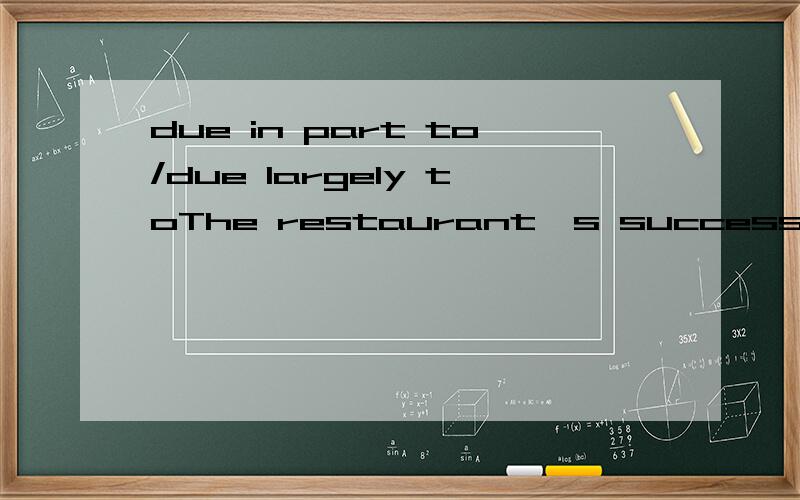due in part to/due largely toThe restaurant's success was due largely to its new manager.Attendance at the meeting was small,due in part to (=partly because of) the absence of teachers.--------还有due to 与 thanks to/because of有什么区别?
来源:学生作业帮助网 编辑:作业帮 时间:2024/04/28 02:55:42

due in part to/due largely toThe restaurant's success was due largely to its new manager.Attendance at the meeting was small,due in part to (=partly because of) the absence of teachers.--------还有due to 与 thanks to/because of有什么区别?
due in part to/due largely to
The restaurant's success was due largely to its new manager.
Attendance at the meeting was small,due in part to (=partly because of) the absence of teachers.
--------
还有due to 与 thanks to/because of有什么区别?
due in part to/due largely toThe restaurant's success was due largely to its new manager.Attendance at the meeting was small,due in part to (=partly because of) the absence of teachers.--------还有due to 与 thanks to/because of有什么区别?
三者都表示因为.的原因,且都后继名词,due to 在我看来更注重事情发生的“责任”在于哪里,而thanks to 有很强的感激地意味,而because of 是客观的不带感情色彩的.
due largely to 大致上由于
due in part to 部分上由于